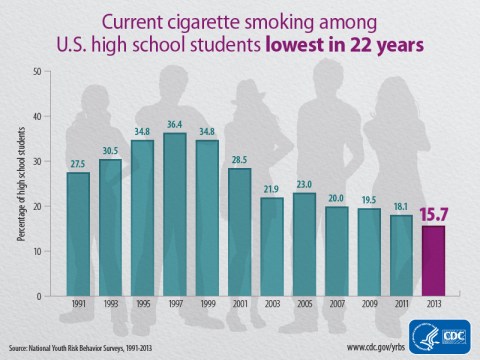In a CDC-sponsored survey, Georgia high school students answered questions on smoking cigarettes, wearing bicycle helmets, carrying a weapon, drinking alcohol, having suicidal thoughts and trying marijuana.
But the state’s students, once again, did not answer questions about their sexual behavior. They didn’t get the chance.
For more than a decade now, Georgia has deleted the questions on sex. So unlike most of their counterparts nationally, the state’s students were not asked about whether they have ever had sexual intercourse, and whether they wore a condom during intercourse.
The Youth Risk Behavior Survey’s results, released last week, were taken from 2013 responses.
Though the effort is federally sponsored, each state decides which questions can be asked within its jurisdiction. Besides Georgia, other states prohibiting the sex questions last year included Louisiana, Utah and Virginia.
The YRBS is sent at random to high schools. The process is anonymous, with no recording of students’ identities.
(The CDC noted that nationally, cigarette smoking rates among high school students have dropped to the lowest levels since the YRBS began in 1991,
reaching 15.7 percent. In Georgia, 12.8 percent of high schoolers said they currently smoked cigarettes.)
Asked about the absence of sex questions, a spokesman for the Department of Education on Friday referred a reporter to the Department of Public Health.
The latter agency said through a spokesman that the state must include questions related to sexual behavior by 2017 in order to comply with federal requirements.
“Georgia is permitted some level of choice in which questions are included,’’ said the Public Health spokesman, Ryan Deal. “In the coming months, DPH will work with its partners to evaluate and determine the best questions for Georgia.
A year ago, GHN reported that the decision not to include questions about sexual behavior would cost the state a shot at federal money for HIV/STD prevention.
In a letter from a Department of Education official to the CDC, the state said it would not apply for a round of federal funding for HIV/STD education because “it will not be able to comply with the new requirements.’’
Those new rules from the CDC require a state to include sex questions in the Youth Risk Behavior Survey in order to qualify for the extra funds.
HIV takes a heavy toll in Georgia. The state had the fifth-highest number of new HIV infections in 2011.
Georgia has the 17th-highest teenage birth rate in the nation, though that rate is declining.


